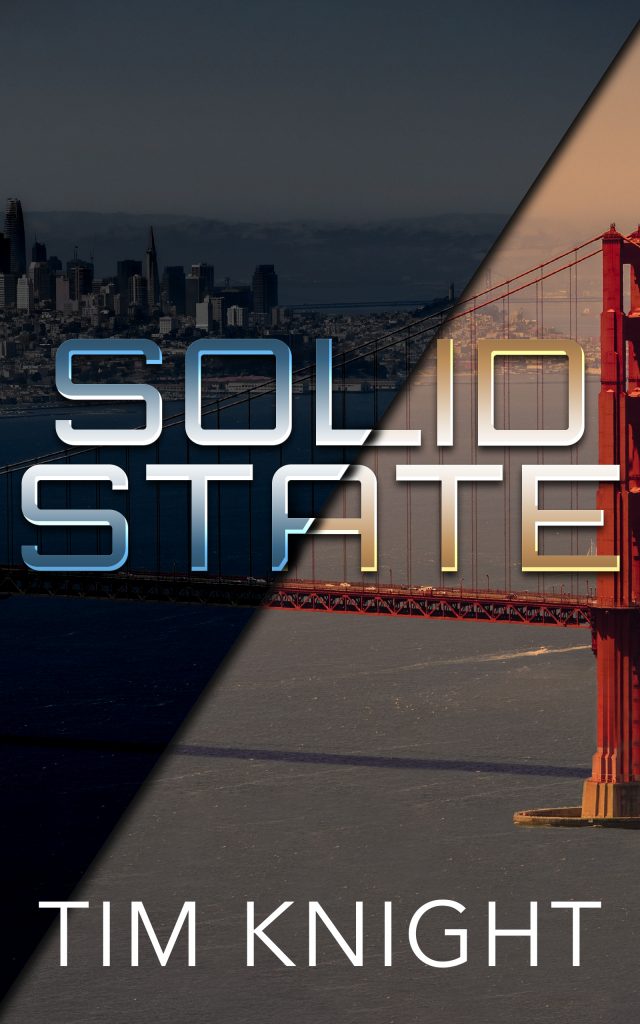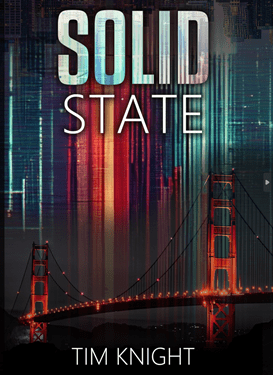
Before I even start into this best-of-Slope post, I’ll come right out and say it: if you are (or know of) someone in the world of literary agents or publishing, I’d love to hear from you. By the end of this post, I think you’ll see why! So here we go.
I’ve been a professional writer since I was a teenager. I wrote for national magazines at 15, had my first published book at 16, and by the time I was 25, I had written that many books (that is to say: 25). They were all books about computers, and I was financially independent by the time I was in my late teens. Getting published was very easy, because almost every book proposal I came up with was accepted. I had no agent. Just myself.
Decades (and 40,000 blog posts) later, enough Slopers had told me how much they loved my writing that I got something into my head I had never considered, which was to write a novel. As I’ve mentioned in the past, I’ve never been a novel reader. I am not joking when I say that, over the course of my long life, I think I’ve voluntarily read maybe two novels, and that count might be too high by one. This is not to say I’m not a reader in general. I read constantly, 365 days a year. I just never was interested in fiction.
During Covid, some people learned to play the guitar, others learned to cook, and I took it upon myself to write a novel, which considering my experience with fiction was roughly equivalent of me deciding to become a tutor for those learning Chinese. I had no idea what I was doing. Zero. But it came fairly naturally to me, and although it was a huge amount of work, I completed Solid State on my own. As you can see from the reviews, it has been fairly well-received, averaging 4.8 stars on Amazon.
I was happy to leave well enough alone, since I was happy with the book, and I got it out of my system.
However, a dear friend of mine from childhood is an accomplished novelist, and long after I published the book, I sheepishly sent him a copy of Solid State, which I figured he could use to shore up a wobbly breakfast table or something.
I got two very big surprises: (1) he read it and (2) he said it was the BEST novel he had read from anyone he knew.
I was floored. He told me, however, that the final third of the book sucked, and if I wanted to really put in the time and make it great from end to end, he would be willing to make an enthusiastic introduction to his literary agent. Although I figured I was totally done with Solid State, I was so excited by what he was saying that I decided to plunge into the project feet-first once again.
I learned something very important: improving an existing novel is WAY more work than writing it in the first place. It took months. In the end, however, it was so much better than the original, I actually found my first version embarrassing. (All those nice Amazon reviews, by the way, are for the bad version; I am very eager for people to see the vastly-improved one!)
In any case, at long last, I was able to submit the finished work to my friend and, in turn, his agent.
I’ll save everyone the tension and tell you that, to my bitter disappointment, she said nope. She was polite about it, but she didn’t even read the book. She just glanced at the synopsis and gave it a hard no.

I was already extremely confused. It’s not like I’ve never written anything in my life. I’ve been writing published works for decades. I figured – – very naively, it turns out – – that any publisher would be delighted to publish my novel. On the contrary, there are about fifteen gigantic thick walls I have to conquer in order to get there. But I’m getting ahead of myself.
After my friend’s agent said, nope, good luck, see ya, I took it upon myself to reach out to other agents. I put together packages for dozens of different agents, and just as quickly, the no-thank-you emails started flying back. Some were polite and encouraging:
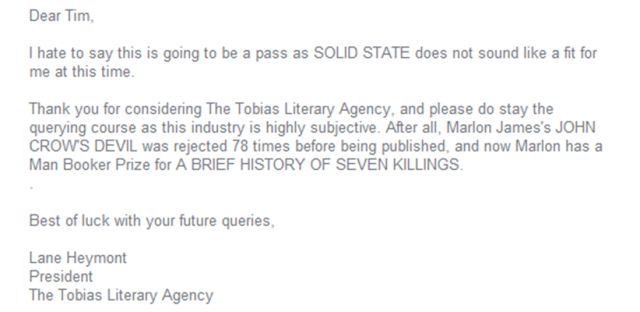
Whereas others bordered on just outright rude:
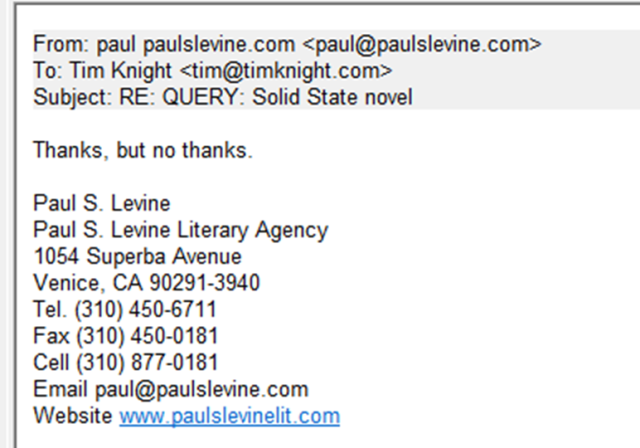
I want to emphasize not a single one of these folks actually read my book. They just ask for a query letter, a synopsis, and in some cases, the first few pages.
This whole experience was perplexing to me. I am a good writer. My friend, who believe me is not a person who offers false praise, loved my book. The people who bought the (much worse version) of my book also seemed to love it. How come everyone was slamming their door in my face?
I then decided to do something I wish I had done before, which is learn a bit about the world of literary agents. What I found out was rather amazing.
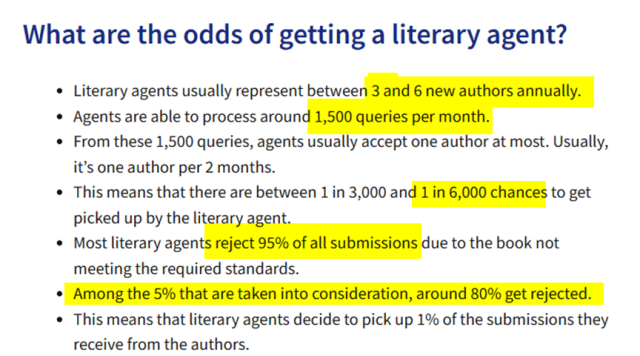
So let’s just unpack that a bit as the saying goes.
- The odds of getting an agent are 1 in 6,000
- If you do get an agent to show an interest, there’s only a 5% chance that they’ll actually agree to find a publisher for your book
- I read elsewhere that, should one get that far, only about 1% of the books that publishers are presented actually get picked up.
- Should you survive all these filters, which is basically lottery level odds, you can look forward to a big, fat, $10,000 advance, which is less than I was given for each of my books when I was a kid (in 1982 dollars).
- And if you manage to be one of the 1 out of 50,000 people who get that far, about 95% books sell fewer than 5,000 copies, which means you probably won’t earn out your advance.
Let me be clear about my creation of Solid State: none of this is about money. If a publisher came along right this moment and said they’d be happy to publish my book and would cheerfully pay me $0 for it, I’d sign at once. I just want people to read what I’ve written. That’s honestly my only goal.
Yet, as you can see, the book industry apparently sucks whale. Sure, there are a tiny handful of authors and books that make it big (which is precisely the same in the world of making movies, the world of making music, or any other endeavor which is fiercely competitive), but on the whole, almost no writers get published, and of those who do, they’re going to be eating ramen for dinner every night.
It isn’t any bonanza for the agents, either. Most of them make five figures or less per year. An eager employee at McDonalds (in California, at least) could make more cash
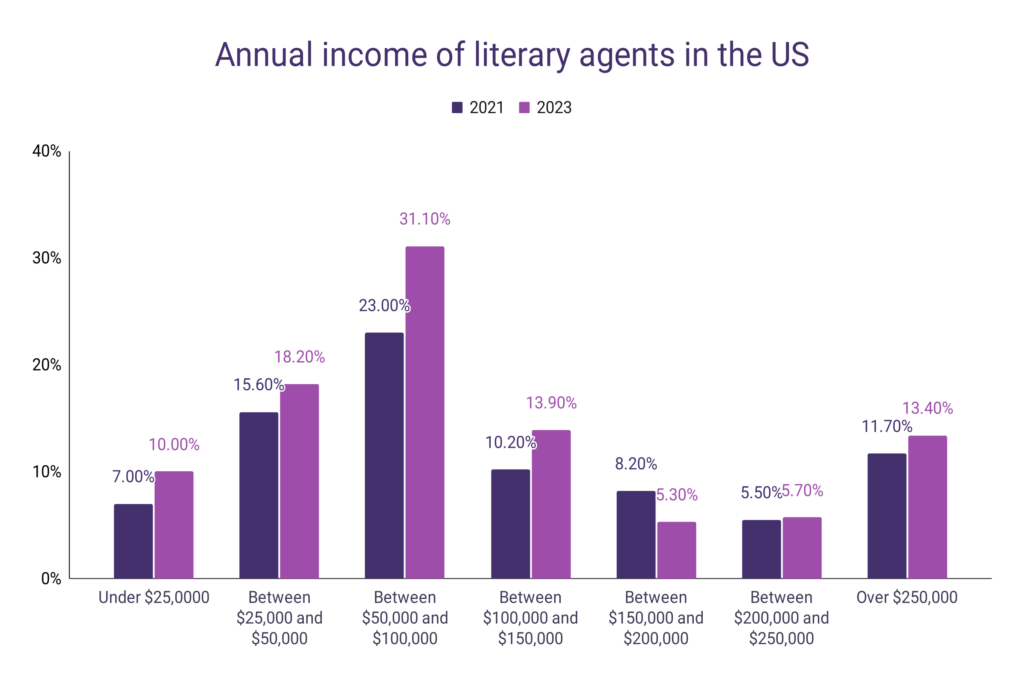
Plus they are almost all white women. I daresay that the demographic profile of those who watch The View is more diverse than the world of literary agents.
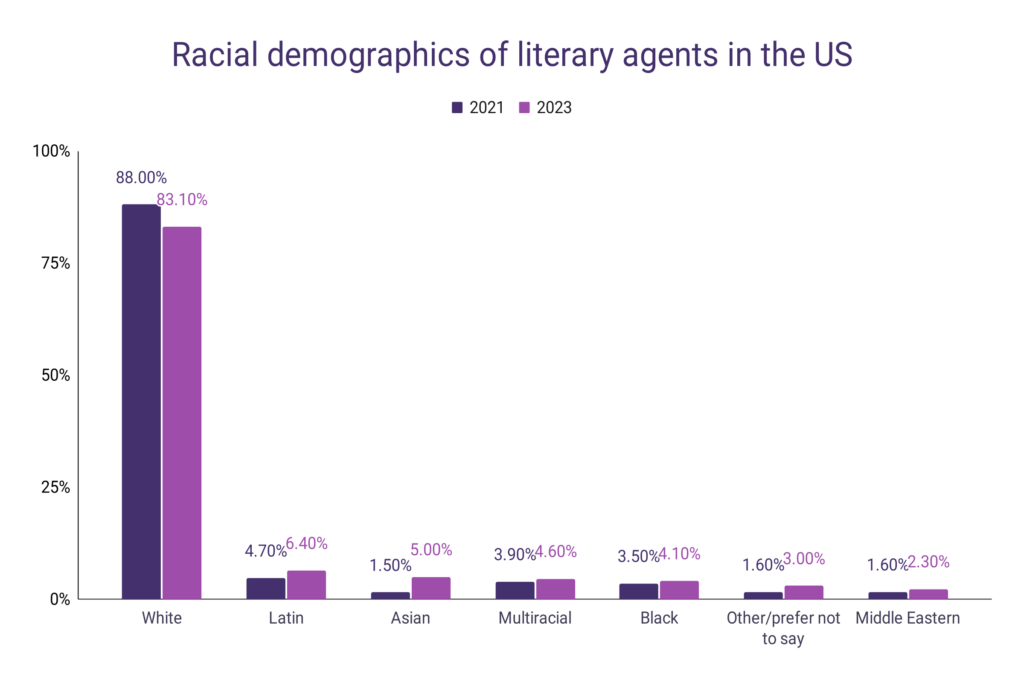
The sad fact of the matter is that, in all likelihood, I’ll simply “update” my existing self-published book with my vastly better creation. I am terribly proud of what I’ve done, since I think it is by far the best thing I’ve ever created. Still, if by chance you know someone……………..let ’em know a great novel awaits!
